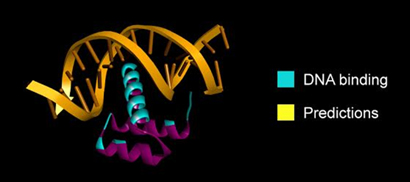
Biomedical informatics: computational genomics and drug design.
ABOUT MY WORK
How can we use genomic, molecular and clinical data to predict medical conditions and to design new drugs?


SELECTED PUBLICATIONS
Tickotsky N and Ofran Y (2017) “Integrating genomic data from high-throughput studies with computational modeling reveals differences in the molecular basis of hyposalivation between type 1 and type 2 diabetes”. | Clin Oral Investig. 2017 Mar 3. doi: 10.1007/s00784-017-2094-2
Peled S, Leiderman O, Charar R, Efroni G, Shav-Tal Y and Ofran Y (2016) “De-novo protein function prediction using DNA binding and RNA binding proteins as a test case.” | Nat. Commun. 7, 13424 doi: 10.1038/ncomms13424
Brodie A, Azaria JR and Ofran Y (2016) “How far from the SNP may the causative genes be?” | Nucleic Acids Res, published ahead-of-print: doi: 10.1093/nar/gkw500
Burkovitz A and Ofran Y (2016) “Understanding differences between synthetic and natural antibodies can help improve antibody engineering”. | MAbs. 2016 Feb-Mar;8(2):278-87. doi: 10.1080/19420862.2015.1123365
Sela-Culang I, Rafii-El-Idrissi Benhnia M, H. Matho M, Kaever T, Maybeno M, Schlossman A, Nimrod G, Li S, Xiang Y, Zajonc D, Crotty S, Ofran Y and Peters B (2014) “Using a Combined Computational-Experimental Approach to Predict Antibody-Specific B Cell Epitopes.” | Structure, published ahead-of-print: doi: 10.1016/j.str.2014.02.003

RESEARCH PROJECTS
Computational design of antibodies.
Pathway based prediction of disease from genomic data.
Epitomics: characterizing individuals by what their antibody repertoire binds
